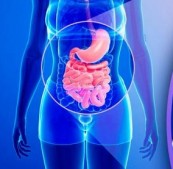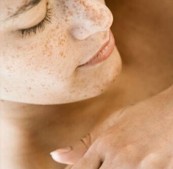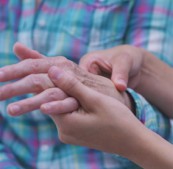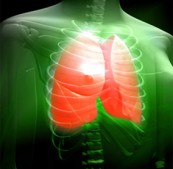Polycystic Ovarian Disease

Polycystic ovarian syndrome, also known as Polycystic ovarian disease or PCOD is a very common female health complaint. The word “Syndrome” is used to describe the PCOD because, it is a complex manifestation involving many factors and organs such as – obesity, insulin resistance, irregular menstrual bleeding (in most cases, excessive menstrual bleeding), abnormal menstrual periods & cycle, lack of ovum production (anovulation) etc.
PCOS is a common female endocrine disorder affecting approximately 5- 12% of women. It causes worry as it is commonly found in reproductive age; also it is thought to be one of the leading cause of female infertility.
Organs involved in Polycystic Ovary disease
- Ovary – the female gonad organ, present at either side of the uterus.
- Adrenal glands – The glands which are placed just above both the kidneys.
- Pancreas – Gland that produces insulin in our body.
- Pituitary gland – the gland just below the brain, which is responsible for all the hormonal control.
This problem is so common that the incidence varies between 0.5 – 4 per cent, more common amongst infertile women. It is prevalent in the young reproductive period.
Brief with types
- Insulin-resistant PCOS – this is the most typical and common PCOS type. High insulin levels stop ovulation in its tracks, causing irregular cycles and symptoms. The insulin resistance is brought about by diet. The symptoms are weight gain or obesity, acne, hirsutism, mood swings, and lack of periods. Women with this kind of PCOS are usually considered borderline diabetic.
- Inflammation-based PCOS – this is the kind of PCOS that can be seen in women who are not overweight, but normal weight or even underweight, and don’t feel they have any of the classic symptoms of PCOS. The inflammatory response that stops ovulation and causes irregular cycles comes from the body’s response to foods like gluten, dairy, sugar, soy, or from overexposure to endocrine disruptive chemicals whether it be from chemical lawn spraying or frequent use of the dry cleaner. There are multiple influencers that can cause suppressed ovulation and irregular cycles.. The lack of ovulation will cause symptoms, but it won’t necessarily look or feel the same as common, insulin-resistant PCOS.<
- Synthetic Hormone-Induced PCOS – this kind of PCOS is common for women who have been on the pill or other hormonal birth control like the implant, shot, or ring, for a long time. They will come off and see their periods do not return. The synthetic hormones shut down communication between the pituitary gland and the ovaries in order to prevent pregnancy and often times this can be challenging to bring back online.
Signs & Symptoms(Lakshana):
Clinically PCOS often manifests itself at menarche with some form of menstrual irregularity, but not essentially. The principal signs and symptoms of PCOS are related to
menstrual disturbance and elevated levels of male hormones (androgens).
Also patient approach the physicians with the features like
- menstrual irregularities
- androgenic features such as hirsutism, acne, alopecia etc
- obesity
- infertility caused by improper ovulation etc.
The patient complains of increasing obesity, menstrual abnormalities in the form of less menstrual bleeding, absence of menstruation, or abnormally high and irregular bleeding and infertility. There may be abnormal growth of hair at different places of the body. The patient may not always be obese. In some patients, due to insulin resistance, a dark coloured band like skin lesion may be developed at the back of the neck, inner thighs and axilla, called Acanthosis nigricans. Internal examination reveals bilateral enlarged cystic ovaries which however may not be revealed due to obesity
Causes(Nidan):
The exact cause of PCOS is unknown. Factors that might play a role include:
- Excess insulin. Insulin is the hormone produced in the pancreas that allows cells to use sugar, your body's primary energy supply. If your cells become resistant to the action of insulin, then your blood sugar levels can rise and your body might produce more insulin. Excess insulin might increase androgen production, causing difficulty with ovulation.
- Low-grade inflammation. This term is used to describe white blood cells' production of substances to fight infection. Research has shown that women with PCOS have a type of low-grade inflammation that stimulates polycystic ovaries to produce androgens, which can lead to heart and blood vessel problems.
- Heredity. Research suggests that certain genes might be linked to PCOS.
- Excess androgen. The ovaries produce abnormally high levels of androgen, resulting in hirsutism and acne.
Treatments :
Treatment protocols include Panchakarma procedures like,
Sodhana Chikitsa (Eliminative therapies)
- Vamana
- Virechana
- Basti
- Uttara vasti
Samana Chikitsa (Palliative treatment)
The first step towards treatment is Nidanparivarjana ie,avoiding the causes which are at the root of the disease. As vatadosha and dushtamedas are key elements involved, ahara and vihara causing vataprakopa and medovriddhi should be avoided. The management approach to PCOS
- Should concentrate on treating Agnimandya at jatharagni and dhatwagni level and alleviating srotovarodham and ultimately regularizing the apanavata.
- Amapachan and agnideepana
- Vaman Karma- To eliminate vitiated kapha and soumaya substances from body resulting into relative increase in agneya constituents of the body, consequently artava also increases
- Uttarbasti- Removes the sanga in aartavavahasrotas
- Aampachan, srotoshodhan and vatakaphashamak properties may be responsible for efficacy
- Use of various lekhandravyas like takra.
- Dietary modifications are also useful.
- Dincharya of the patients should be adjusted
Ayurvedic herbal remedy for PCOD
Ayurvedic treatment is by applying a multi-pronged approach towards: –
- Correcting hormonal imbalance
There are many herbs useful in correcting the hormonal imbalance. Ashoka (saraca asoca), Dashamoola (a group of ten herbal roots) a group of herbs useful in preparation of Sukumara Kashaya like Ashwagandha, Eranda, Shatavari etc. are useful in correcting the hormonal imbalance.
- Treatment for obesity
Treatment to obesity and specifically against cholesterol can be achieved by using Ayurvedic herbal remedy plus diet and lifestyle changes.
- Treatment of insulin resistance
Treatment for insulin resistance involves a time consuming approach with effective Ayurvedic treatment and diet and lifestyle changes including exercise.
Additional Treatment
YOGA for PCOS
- Sarvagasana
- Matsyasana
- Ardhmatsyendrasana
- Paschimottanasana
- Surya namaskar
- Ushtrasana and all backward bending asana are recommended but they should be try under the supervision of an expert
Prevention
Primary prevention. There have been no clinical trials of primary preventionmeasures in PCOS. It is thought that lifestyle intervention (healthy diet, frequent exercise) and/or metformin therapy may prevent PCOS, but without appropriate clinical trials, such interventions for primary prevention are undemonstrated. The traditional approach to treating PCOS is focused on treating symptoms with medications rather than focusing on the root cause. For example, taking birth control pills for irregular periods or medications for acne and hirsutism.
7 Steps to Prevention and Potential Cure of PCOS
- Beat Insulin Resistance: If you want to cut PCOS out from the root, you need to understand and eradicate insulin resistance. The good news is most cases of insulin resistance are completely reversible through lifestyle changes
- Correct Key Micronutrient Deficiencies: Remember, you can be on a low fat, low carb, low calorie, vegan and/or vegetarian diet and still suffer from significant micronutrient deficiencies that put you at risk for PCOS.Some of the major ones below:
B-vitamin deficiencies: B12 deficiency is linked to insulin resistance and in pregnant mothers can increase the risk of type 2 diabetes in the child. In addition, the long-term use of common medications used to treat PCOS like metformin and oral contraceptives can contribute to B12 deficiency. Talk to your doctor about checking B12 levels and be sure to include B12-rich foods and consider supplementation under your doctor’s supervision.
Magnesium deficiency: A magnesium-rich diet can help reduce insulin resistance and can also combat some of the symptoms of PCOS like PMS, migraines, mood disorders and fatigue. Magnesium-rich foods include spinach, swiss chard, pumpkin seeds, almonds, dark chocolate (70% plus in moderation), avocados, etc.
Zinc deficiency: associated with low androgens and acne. Eat zinc-rich foods like nuts, seeds (pumpkin, sesame), certain meats (grass-fed lamb and beef in moderation), beans (garbanzos in moderation), unsweetened kefir/yoghurt, spinach, etc.
Vitamin D deficiency: Deficient vitamin D is associated with insulin resistance and is commonly low in PCOS.
Iron deficiency: Iron deficiency is often a consequence of PCOS, especially if women have heavy or prolonged periods. Iron deficiency in turn can make symptoms of PCOS worse like fatigue and mood disorders.
In addition to eating a diet deficient in nutrients, an excessive intake of wheat and grain-based products can bind many of the key minerals mentioned above (zinc, magnesium, vitamin D, etc.) due to to a substance called phytic acid which you can read about here. Eating the wrong foods and excluding the right foods together increase the risk of PCOS and most chronic health conditions.
- Eliminate Toxin Exposures: Toxins that interfere with hormone function are known as “endocrine disrupting chemicals” or EDCs and the most commonly studied ones are found in plastics like Bisphenol A (aka BPA). Some tips for reducing exposure:
Replace plastic food containers and water bottles with glass and stainless steel
Eat/drink the cleanest, most natural diet possible, including the water you drink
Fetal exposure to such toxins can actually increase the risk of PCOS and other health conditions. The developing fetus is especially sensitive to the effects of toxin exposures which influence and shape their genetic blueprint. It is imperative that mothers do everything possible to minimize toxin exposures during pregnancy.
- Improve Emotional Health and Sleep: Sleep deprivation and chronic stress are major root causes for insulin resistance and micronutrient deficiencies.
- Consider Cutting Back or Eliminating Dairy. Dairy can increase androgen production and worsen certain symptoms like acne.
- Eat More Omega-3s: While eating excess dairy may increase androgens, consuming more Omega-3s can reduce them as seen in this study. Eat foods rich in these healthy fats like cold water fish (Salmon, Mackerel, Albacore Tuna, Sardines, etc.), nuts (especially walnuts), seeds (chia and flax), and egg yolks.
- Increase Physical Activity: You need to stay physically active to keep blood glucose and insulin levels low, which helps mitigate insulin resistance. Although exercise is important, keep in mind that diet is key. I have many female patients who have been physically active their whole life but developed insulin resistant conditions like type 2 diabetes and PCOS due to a suboptimal diet





